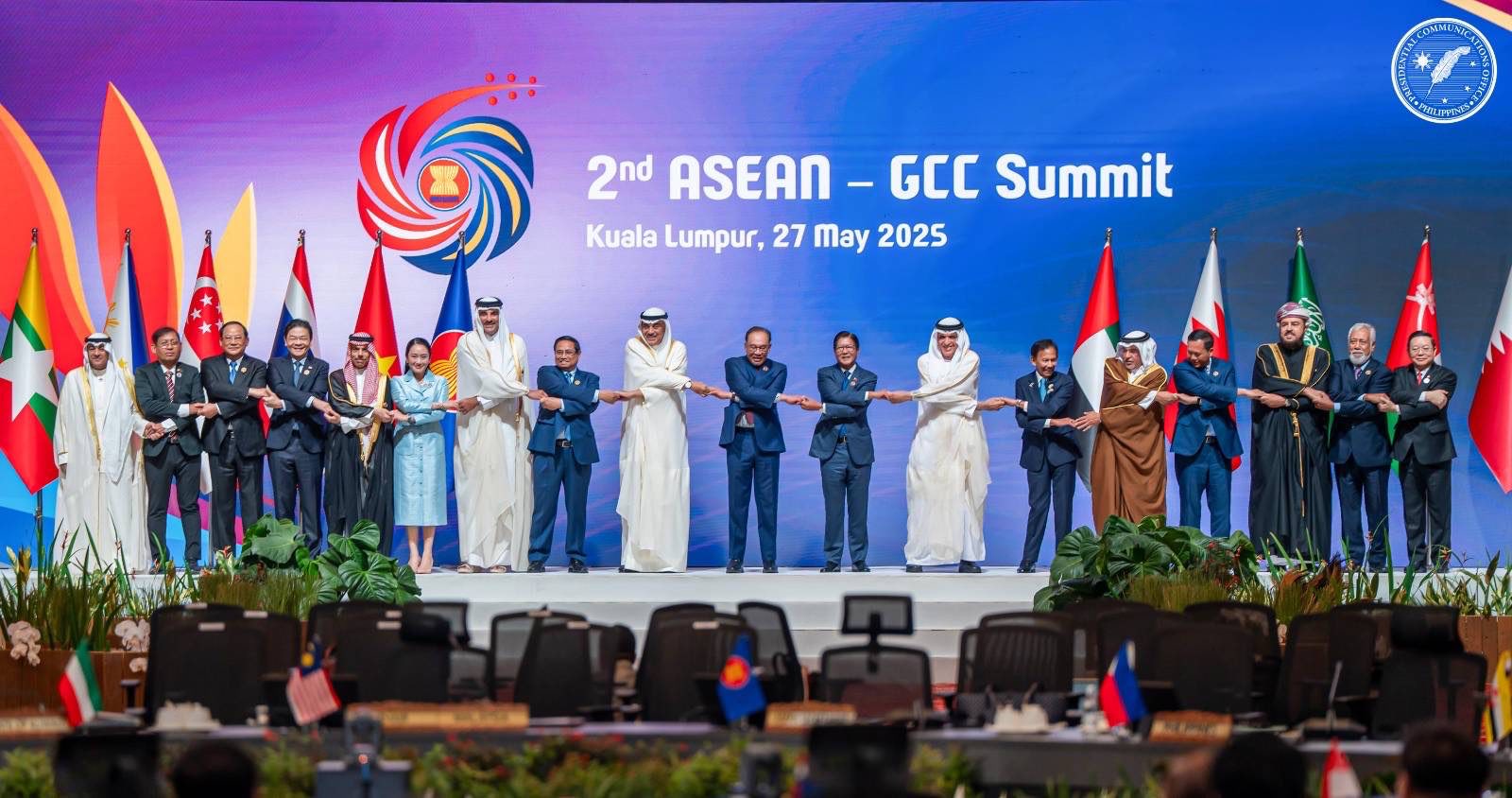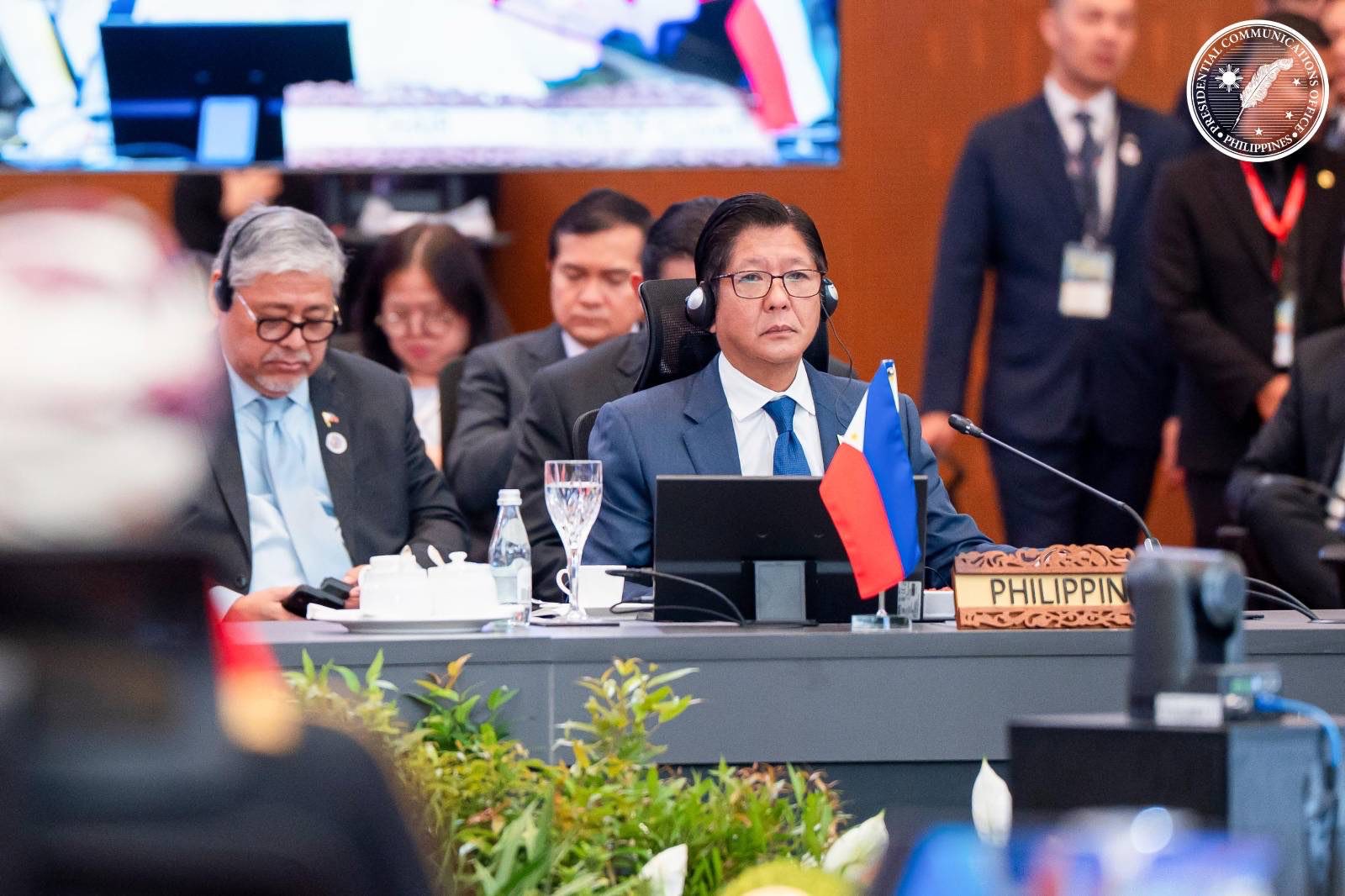
By Darryl John Esguerra | Philippine News Agency
President Ferdinand R. Marcos Jr. called on Southeast Asian and Arab Gulf State leaders to ensure freedom of navigation and uninterrupted trade in the South China Sea and Arabian Sea as both bodies of water serve as “lifelines” to regional and international commerce.
Marcos underscored the strategic importance of both seas as vital arteries for global commerce, as he spoke at the 2nd Association of Southeast Asian Nations – Gulf Cooperation Council (ASEAN-GCC) Summit on Tuesday in Kuala Lumpur, Malaysia.
Amid rising tensions and maritime disputes, particularly in the South China Sea, the President emphasized the need for strict adherence to international law, highlighting the United Nations Convention on the Law of the Sea (UNCLOS) as the cornerstone of maritime governance, “As such, it is necessary to provide the freedom of navigation, to guarantee unimpeded commerce, and to protect the marine environment through compliance with established international law, specifically UNCLOS.”
The South China Sea has long been a flashpoint, with China asserting sweeping claims that overlap with the exclusive economic zones of several ASEAN countries, including the Philippines.
Meanwhile, the Arabian Sea remains a critical route for energy exports from the Middle East, vulnerable to regional instability and piracy.
Marcos has been advocating for rule-based international order in maritime affairs, amid the Philippines’ legal victory at The Hague in 2016 which invalidated China’s expansive claims in the South China Sea.

Support for climate loss and damage fund
The Chief Executive also made a strong pitch for climate justice, urging developed nations to contribute to the newly established Fund for Responding to Loss and Damage (FRLD), which the Philippines now hosts.
In a region-to-region dialogue focused on economic and sustainable development, Marcos drew attention to the shared vulnerability of ASEAN and Arab Gulf nations to the worsening impacts of climate change—from rising seas to extreme heat and biodiversity loss.
“Climate change remains one of the most defining challenges of our time–if not the most defining challenge of our time,” Marcos told regional leaders. Both our regions are climate-vulnerable, and our populations face significant climate-related risks such as sea level rise, rising temperatures, desertification, and loss of biodiversity, among others.”
He emphasized the Philippines’ leadership role in climate finance by hosting the FRLD, a fund aimed at assisting vulnerable nations in coping with the irreversible losses caused by climate change—especially in areas like agriculture, coastal infrastructure, and natural ecosystems.
“As host of the Fund for Responding to Loss and Damage, the Philippines would like to encourage contributions to that Fund,” the President said.
Marcos explained that Manila’s hosting of the FRLD would ensure that developing nations gain faster and more direct access to crucial climate financing—a long-standing call by countries most affected by climate change, yet least responsible for its causes, “The Philippines’ hosting of the FRLD will accelerate the unhindered access of developing nations to climate finance, which shall aid in the development and implementation of transformative and science-based strategies and initiatives for climate change adaptation, mitigation, and disaster risk management, towards ensuring sustainable and inclusive growth for all.”
The FRLD Board consists of 26 members from the Conference of the Parties (COP) and Meeting of the Parties to the Paris Agreement (CMA), with 12 members from developed country parties and 14 members from developing country parties.
The Philippines secured a seat on the Board as a permanent representative of the Asia-Pacific Group for 2024 and 2026 and as an alternate representative of the Asia-Pacific Group for 2025.
